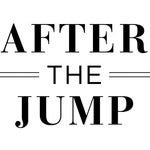So What, Who Cares? (vol 1, issue 27) How sharks score on the Myers-Briggs test
We're sliding into the weekend, which is one of those good news/bad news situations depending on the length and composition of your to-do list. Know "be more smarter" off the bottom with this end-of-this-week wrap.
*
A few years ago, I read The Devil's Teeth, Susan Casey's account of how she personally caused the long-running great white shark research off the Farallones to be shut down.
To be fair, the book is also about the quiet and idiosyncratic brand of heroism most naturalists display in their quest to study other species. And it's about the colorful history of the Farallones, those rocky little outposts that are so close to San Francisco and worlds away. And then there are the sharks. This passage has remained with me:
Admittedly, the sharks weren’t doing quadratic equations out there and no one was suggesting a snuggle, but every day at the Farallones these animals were demonstrating far more nuance and intelligence than they were supposed to have. Another thing they weren’t supposed to have is a personality . And yet one of the most intriguing discoveries of the Shark Project was that they did. There were aggressors and there were clowns; there were mellow sharks and peevish sharks and sharks that meant absolute bloody business.
Casey goes on to note that "scientists tend to squirm when the question of individual personalities in animals is introduced."
A few scientists squirmed their way through a study to conclude that verily, sharks do have personalities. They can be introverts or extroverts. No word on whether any shark species skews to any particular combination in the Myers-Briggs tests -- yet.
So what? The field of animal personality studies has exploded in the 2000s as scientists shook off charges of anthropomorphism and realized: Hey, if we study the concept of personality in animals, we can answer questions like: "When did personalities emerge as a survival trait for species?" and "Do specific personality traits manifest in clusters?" and "How inheritable are those traits?" and "Does this mean there are personality traits that are objectively universal across cultures?" More importantly, studying an animal population often allows scientists to observe a group and its members at a far more exhaustive and sustained level than if they were studying people. And in some experiments, scientists can control the environment or set biological parameters to study how external and biological factors affect personality.
Sharks are merely the latest in a long line of animal species that demonstrate distinct personalities. But if it can be proven that some sharks are, in fact, people-munching psychopaths ...
Who cares? If we can find ways to accurately assess the personality traits in animals, that could affect everything from training rescue dogs to killing beef cattle humanely. That's the good news -- humane treatment of animals across a wide variety of situations. The real question, however, is whether acknowledging the idea of animals as unique individuals with distinct personalities will reframe how most people regard the relationship between their species and every other one on the planet. Great ape advocates are already making the argument that these animals' personality constitutes proof of personhood. As animal-behavior studies pile up, we will see increasing debate on what constitutes personhood. If corporations are people, why not sharks?
*
Your pop culture notes of the day:
The trailer for B.J. Novak's book for children, The Book With No Pictures, is just adorable. It's the kind of thing you can watch when you desperately need a safe-for-work pickup. We're getting our copy of the book on Saturday; I'll let you all know how it goes.
Philip Mozolak and I did a double-header recap podcast for episodes 3 and 4 of this season of Sons of Anarchy. Look for a link on my Twitter feed over the weekend or keep an eye on the Teevee podcast page. There's a guest appearance by my daughter, because what almost-four year old doesn't love discussing the bad blood between the Mayans and the One-Niners?

I've been listening to and enjoying the After The Jump podcast, and I highly recommend it for folks who may be suffering from the creative blahs, information overload or Internet Jerkitude Fatigue.
Design*Sponge's Grace Bonney does interviews of creative professionals on their work habits and insights, or she presents a well-reasoned, thoughtful one-woman show on topics ranging from handling online criticism to figuring out what you really want in your life. Unlike a lot of life hacker-y or Maker Culture-type podcasts, this one does not make you feel overwhelmed, inadequate or boring. It's a friendly, useful little show. Give it a try!
*
So are you more or less terrified of sharks now that you know the possibility of a great white ENTP? Tell me via email or Twitter. Always let me know what you think about So What, Who Cares? If you really like it, tell a friend to subscribe.


